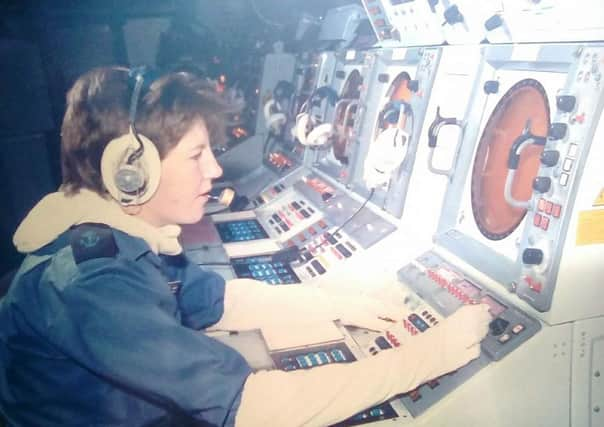Dairsie Navy veteran who suffered ‘melt-downs’ and PTSD thanks support project on 10th anniversary


Citizens Advice and Rights Fife (CARF) is this week celebrating the 10th anniversary of a special project which delivers vital advice and support to people who have served in the armed forces.
The Armed Service Advice Project (ASAP) was set up in 2010 and is run across Scotland by the Citizens Advice network. This week the service announced it had helped a total of 15,950 clients nationally over the decade, and had delivered for them a total of £17.6 million gain in welfare benefits, wages and grants.
Advertisement
Hide AdAdvertisement
Hide AdThe Fife branch of ASAP helped 1611 of those, and delivered £2.4 million of the total gain across Scotland.
Dairsie-based woman Suzie Martin knows first-hand how helpful ASAP can be. Suzie served in the WRNS and then the Royal Navy from 1987-1993. She was the first female Aircraft Controller in the navy, and received the NATO medal with the former Yugoslavia clasp.
She left the Navy to start a family, but then served as a police officer for 19 years. In 2014 she underwent a surgical procedure that went wrong and so had to leave her job. Her condition is debilitating and, having lived an active life, she now requires help to walk, bathe, prepare food etc. Her mental health has also been impacted and she has started to experience flashbacks to distressing incidents in the Navy.
When she first came to ASAP Suzie was receiving no income, so the project helped her claim the benefits she was entitled to, and also put her in touch with organisations who have helped her socialise and deal with her PTSD.
Advertisement
Hide AdAdvertisement
Hide AdSuzie tells her story in full: “Early in 1993 I was drafted to a ship heading to former Yugoslavia. That ship rescued refugees who were escaping from the war, as well as carrying out patrols.
“One day the ship went on fire in the main machinery space. As I went on the flight deck after lunch there was huge black heavy smoke above the ship. My first task was to help water-wall the ship’s side, to try to stop the fire spreading. Then I made my way to the ops room and got both helicopters up in the air. We were fighting the fire for five hours. I know the captain and other high officers were looking at options, including abandon ship. Your training kicks in and you just get on with it.
“We had injuries and the helicopters took them to hospital. Eventually the fire was extinguished and they found two bodies of people who had tried to put the fire out.
“We arrived back to Plymouth in summer 1993, and I got married a week later and took about six weeks of leave that was due to me. On my return to yet another ship, which was sailing to the Gulf, I was flown off after a few weeks when I discovered I was pregnant. At this time I was advised that it would be best if I left the Navy on 28 days notice. As a result I came back home with no house, no maternity leave or pay. I was also having flashbacks and other symptoms. but in the early 1990s PTSD was not so well known.”
Advertisement
Hide AdAdvertisement
Hide AdSuzie then spent almost 20 years with Fife Constabulary. However, in 2014 she started to experience pain and stiffness in her right foot and leg.
A routine operation went wrong and left her with nerve damage. She can not walk far, and has no feeling in her right foot and leg up to her knee.
She added: “When I started to realise that I couldn’t be an operational cop, the flashbacks started to increase, I didn’t want to get out of bed, and wasn’t taking care of myself. I was very anxious, uptight, scared to go outside, worried and stressed that I had no money coming in as I was on no pay from the police because I’d been off injured for a year.
“I had always kept fit, including running, cycling and open-sea rowing to help me deal with the stress of both the Navy and the police.
Advertisement
Hide AdAdvertisement
Hide Ad“But as a result of my operation I couldn’t do these things any more, so my coping mechanisms had been taken away from me.
“I was having melt-downs, just staying in bed and not eating.
“It was at this point I was referred to ASAP, and they helped me get the social security I am entitled to (PIP), which helped me get a mobility scooter and a hand-controlled car.
“They also helped build my confidence so I could get out and socialise again. If it had not been for my ASAP adviser, Lorraine Reid, I would be still in that very dark place.”
Comment Guidelines
National World encourages reader discussion on our stories. User feedback, insights and back-and-forth exchanges add a rich layer of context to reporting. Please review our Community Guidelines before commenting.